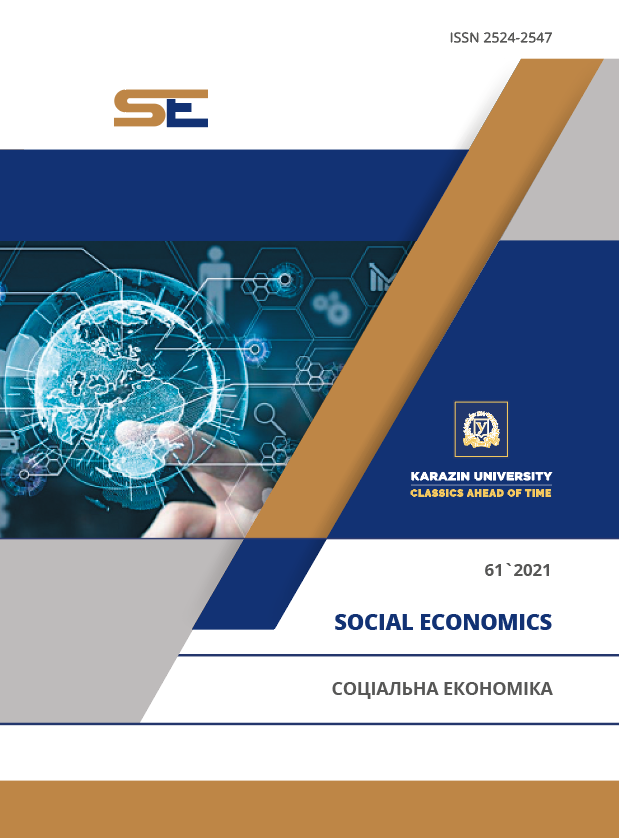ПОДАТКОВА КУЛЬТУРА ТА ПОДАТКОВА МОРАЛЬ: ВПЛИВ НА ВИКОНАННЯ ПОДАТКОВОГО ОБОВ’ЯЗКУ В УКРАЇНІ
Анотація
Метою написання статті є оцінка впливу податкової культури та податкової моралі на виконання податкового обов’язку в Україні та розробка рекомендацій щодо подальшої трансформації національної податкової культури. Встановлено, що серед причин збереження розміру тіньового сектору економіки в Україні є зосередженість на реформуванні податкової системи, адміністрування податків без врахування податкової культури, що склалася історично. Складові податкової культури мають різний рівень сформованості. Процедурно-технологічна культура на поточний момент часу активно розбудовується. Цьому сприяє цифровізація та електронні сервіси, залученість до міжнародної боротьби з ухилення від сплати податків. Культура поведінки, в першу чергу платників податків, сформувалась стихійно, без скерованості процесу органами влади. Враховуючи підтверджену кореляцію між виконанням податкового обов’язку та податковою мораллю, в Україні широко розповсюджена девіантна поведінка платників податків в значній мірі пояснюється низькою податковою мораллю. Рівень податкової моралі в Україні має тенденцію до зниження та тяжіє до мінімальних, а не середніх значень по вибірці країн World Values Survey. Визначено, що низький рівень податкової моралі в Україні спричинений переважно дією інституційних факторів: недовірою до влади, нестабільністю влади, антидемократичними явищами, корупцією. В Україні для подальшої розбудови податкової культури необхідно притримуватись наступних рекомендацій: провести широкомасштабне соціологічне опитування щодо ідентифікації всіх соціально-економічних та інституційних факторів впливу на податкову мораль вітчизняних платників податків, а також щодо виявлення поточної рівня податкової грамотності у населення; активно запроваджувати податкове виховання на всіх рівнях освіти. Подальші дослідження будуть пов’язані з оцінкою рівня податкової грамотності в Україні.
Завантаження
Посилання
Bani-Mustafa, A., Al Qudah, A., Damrah, S., & Alameen M. (2020). Does culture influence whether a society justifies tax cheating? Journal of Financial Crime, ahead-of-print. doi: https://doi.org/10.1108/JFC-03-2020-0031.
Sutrisno, T., & Dularif, M. (2020). National culture as a moderator between social norms, religiosity, and tax evasion: Meta-analysis study. Cogent Business and Management, 7(11). doi: https://doi.org/10.1080/23311975.2020.1772618.
Hutchinson, R. (2019). Culture versus structure: A critical perspective on the role of culture in tax evasion. Accounting Historians Journal, 46(1), 79-91. doi: https://doi.org/10.2308/aahj-10659.
Cabelkova, I., & Strielkowski, W. (2013). Is the level of taxation a product of culture? A cultural economics approach. Society and Economy, 35(4), 513-529. doi: https://doi.org/10.1556/SocEc.2013.0007.
Brink, W. D., & Porcano, T. M. (2016). The impact of culture and economic structure on tax morale and tax evasion: A country-level analysis using SEM. Advances in Taxation, 23, 87-123. doi: https://doi.org/10.1108/S1058-749720160000023004.
Richardson, G. (2008). The relationship between culture and tax evasion across countries: Additional evidence and extensions. Journal of International Accounting, Auditing and Taxation, 17(2), 67-78. doi: https://doi.org/10.1016/j.intaccaudtax.2008.07.002.
Ermasova, N., Haumann, C., & Burke, L. (2021). The Relationship between Culture and Tax Evasion across Countries: Cases of the USA and Germany. International Journal of Public Administration, 44(2), 115-131. doi: https://doi.org/10.1080/01900692.2019.1672181.
Nerre, B. (2008). Tax Culture: A Basic Concept for Tax Politics. Economic Analysis and Policy, 38(1), 153-167. doi: https://doi.org/10.1016/S0313-5926(08)50011-7.
Ashby, J. S., Webley, P., & Haslam, A. S. (2009). The role of occupational taxpaying cultures in taxpaying behaviour and attitudes. Journal of Economic Psychology, 30(2), 216-227. doi: https://doi.org/10.1016/j.joep.2008.08.005.
Pazdnikova, N. P., & Pechenegina, T. A. (2017). Formation of public tax culture. International Journal of Economic Research, 14(16), 389-398.
Endovitsky, D. A., & Lomsadze, D. G. (2019). Assessment of the tax culture and the size of the shadow economy in european studies. Space and Culture, India, 7(3), 196-203. doi: https://doi.org/10.20896/saci.v7i3.686.
Kravchenko, O., Yarmolitska, O., Shuliarenko, S., Kolumbet, O., & Kharchuk, O. (2019). Scenario modeling of change of the level of tax culture: The case of Ukraine. Academy of Accounting and Financial Studies Journal, 23(6). Retrieved from https://www.abacademies.org/articles/scenario-modeling-of-change-of-the-level-of-tax-culture-the-case-of-ukraine-8769.html.
Alm, J., & Torgler, B. (2006). Culture differences and tax morale in the United States and in Europe. Journal of Economic Psychology, 27(2), 224-246. doi: https://doi.org/10.1016/j.joep.2005.09.002.
Parwati, N.M.S., Muslimin, Adam, R., Totanan, C., Yamin, N.Y., & Din, M. (2021). The effect of tax morale on tax evasion in the perspective of Tri Hita Karana and tax framing. Accounting, 7(6), 1499-1506. doi: https://doi.org/10.5267/j.ac.2021.3.014.
Bashinsky, I. A. (2014). Tax culture: genesis and stable views on the meaning of the concept. Bulletin of the Academy of Customs Service of Ukraine. Series: Public Administration, 1, 7-14. (in Ukrainian)
Sydorovych, O. (2017). The essential characteristics of tax culture: institutional context. RFI Scientific Papers, 1, 144-158. (in Ukrainian)
Lуsak, L. (2015). The institutional aspects of the formation and development of the tax culture in Ukraine. Investytsiyi: praktyka ta dosvid, 16, 136-141. (in Ukrainian)
Zamaslo, O. T., & Boichuk, O. I. (2015). An Analysis of the Current Status of Tax Culture in Ukraine. Business Inform, 11, 351-357. (in Ukrainian)
Tkachyk, F. P., Dmytriv, V. I., & Vlokh, O. R. (2019). Monitoring of the modern status of the tax culture in Ukraine. Economy and customs and legal relations, 11-12, 39-47. doi: https://doi.org/10.5281/zenodo.3594520. (in Ukrainian)
Izmaylov, Ya. O., Osmyatchenko, V. O., & Panura, Iu. V. (2020). The impact of economic consciousness and culture of citizens on the formation of tax culture of the society. Economic Herald. Series: Finance, Accounting, Taxation, 4, 34-42. doi: https://doi.org/10.33244/2617-5932.4.2020.34-42. (in Ukrainian)
Kucherova, H. (2015). Tax culture as a determinant of modern taxation in Ukraine. Theoretical and Practical Aspects of Economics and Intellectual Property, 2(2), 53-62. doi: https://doi.org/10.31498/2225-6407.12.2015.76051. (in Ukrainian)
Nerré, B. (2001). The concept of tax culture. Proceedings. Annual Conference on Taxation and Minutes of the Annual Meeting of the National Tax Association, 94, 288-295. Retrieved from http://www.jstor.org/stable/41954732.
Schmölgers, G. (2006). The Psychology of Money and Public Finance. Houndmills, New York: Palgrave Macmillan. doi: https://doi.org/10.1057/9780230625112.
Allingham, M. G., & Sandmo, A. (1972). Income Tax Evasion: A Theoretical Analysis. Journal of Public Economics, 1(3-4), 323-338.
Alm, J., McClelland, G. H., & Schulze, W. D. (1992). Why do people pay taxes? Journal of Public Economics, 48(1), 21-38.
Kirchler E. The Economic Psychology of Tax Behaviour. Cambridge, New York etc.: Cambridge University Press.
Andrushchenko, V.L., & Tuchak, T.V. (2013). Moral and ethical imperatives of taxes and taxation (western tradition): monograph. Kyiv: Alerta. (in Ukrainian)
OECD. (2019). Tax Morale: What Drives People and Businesses to Pay Tax? Paris: OECD Publishing. doi: https://doi.org/10.1787/f3d8ea10-en.
OECD/FIIAPP. (2015). Building Tax Culture, Compliance and Citizenship: A Global Source Book on Taxpayer Education. Paris: OECD Publishing. doi: https://doi.org/10.1787/9789264205154-en.





